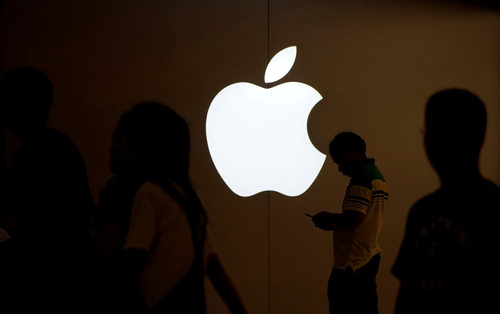Reuters
Aug 30, 2018
Apple buys startup focused on lenses for AR glasses
Reuters
Aug 30, 2018
Apple Inc has acquired a startup focused on making lenses for augmented reality glasses, the company confirmed on Wednesday, a signal Apple has ambitions to make a wearable device that would superimpose digital information on the real world.

Apple confirmed it acquired Longmont, Colorado-based Akonia Holographics. “Apple buys smaller companies from time to time, and we generally don’t discuss our purpose or plans,” the iPhone maker said in a statement.
Akonia could not immediately be reached for comment. The company was founded in 2012 by a group of holography scientists and had originally focused on holographic data storage before shifting its efforts to creating displays for augmented reality glasses, according to its website.
In augmented reality, digital information is overlaid on the real world as in the popular game Pokemon Go. Mobile phones use their camera system to do this on the phone’s screen, but major technology firms are racing to create glasses that will show digital information on transparent lenses.
Akonia said its display technology allows for “thin, transparent smart glass lenses that display vibrant, full-colour, wide field-of-view images.”
The firm has a portfolio of more than 200 patents related to holographic systems and materials, according to its website.
Akonia also said it raised $11.6 million in seed funding in 2012 and was seeking additional funding. It was unclear whether that funding ever materialized or who the firm’s investors were.
The purchase price and date of the acquisition could not be learned, though one executive in the augmented reality industry said the Akonia team had become “very quiet” over the past six months, implying that the deal may have happened in the first half of 2018.
Apple has a history of buying smaller companies whose technologies show up years later in its products. In 2013, Apple acquired a small Israeli firm called PrimeSense that made three-dimensional sensors. The iPhone X, launched last year, used a similar sensor to power facial recognition features.
Bloomberg last year reported that Apple was developing augmented reality glasses that could ship as early as 2020. Apple declined to comment on its plans or products.
But the company last year launched augmented reality applications for its iPhones and iPads, and CEO Tim Cook has called augmented reality a “big and profound” technology development.
“This is one of those huge things that we’ll look back at and marvel on the start of it,” Cook said of augmented reality on a conference call with investors last year.
The Akonia acquisition is the first clear indication of how Apple might handle one of the most daunting challenges in augmented reality hardware: Producing crystal clear optical displays thin and light enough to fit into glasses similar to everyday frames with images bright enough for outdoor use and suited to mass manufacturing at a relatively low price.
Augmented reality headsets currently on the market such as Microsoft Corp’s HoloLense and startup Magic Leap’s Magic Leap One both use darkened lenses and are intended for indoor use.
Both are also intended for software developers testing the technology and cost several thousand dollars.
© Thomson Reuters 2024 All rights reserved.
























